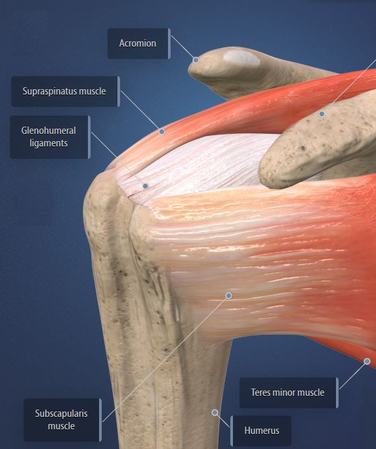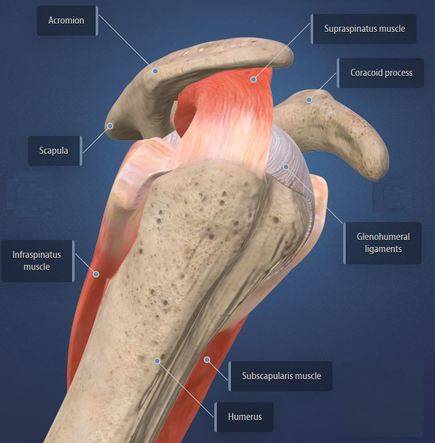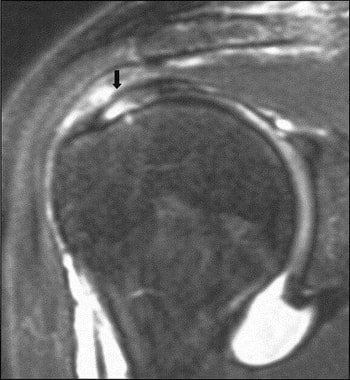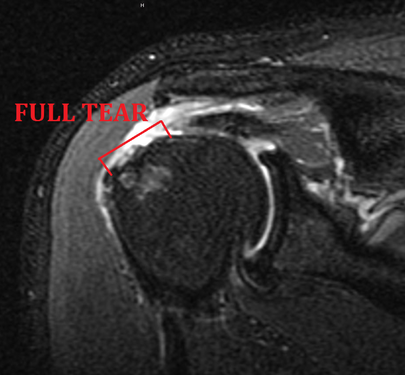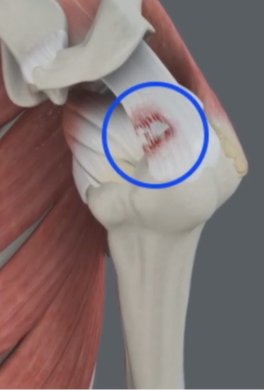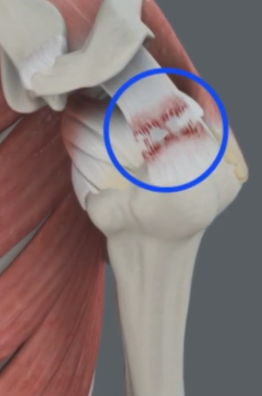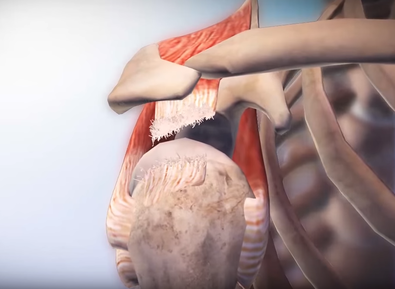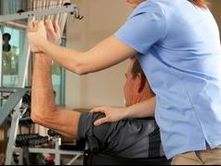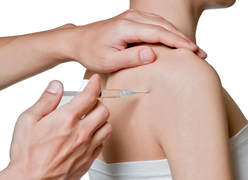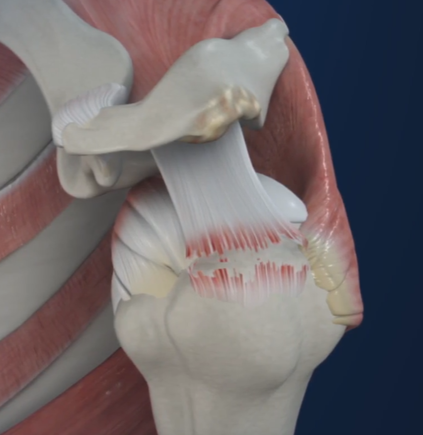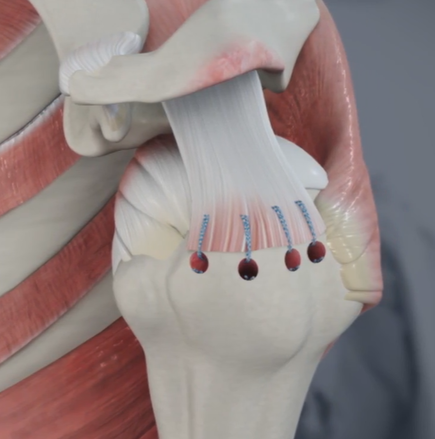What is the Rotator Cuff?
The rotator cuff is a group of 4 muscles that help you move your shoulder. The muscles are named the subscapularis, supraspinatus, infraspinatus and teres minor. The muscles function together to stabilize the shoulder and allow you to lift the shoulder (abduction), rotate the shoulder and lift the arm from a by-the-side position.
Below are images showing the normal anatomy.
Below are images showing the normal anatomy.
What are the symptoms of a Rotator Cuff tear?
|
Most rotator cuff tears are due to long term use, likely related to strenuous lifting and job activities. Rotator cuff tears can also acutely, for example, when lifting things and you feel a "pop" in the shoulder and your arm gives out. Acute tears of the rotator cuff are far less common than the classic attrition type tear. Most people will complain of nighttime pain in the affected shoulder, inability to sleep on the shoulder, limitations in what they can lift and an inability to raise the hand over the head.
|
Key Symptoms
Shoulder Pain Nighttime pain on outside of shoulder Inability to lift arm Weakness in affected arm Grinding and popping of shoulder |
Advanced Imaging of Rotator Cuff Tears
The gold standard for determining if there is a rotator cuff tear is by MRI. For those who are unable to do an MRI, a CT arthrogram or an ultrasound is the next best choice. MRI shows the size of the tear, the location of the tear and allows our doctors in Atlanta to determine if rotor cuff tear shoulder surgery is appropriate. Below are some MRI images showing the difference between a partial and full thickness tear of the rotator cuff. The MRI also helps determine if arthritis is present, and depending on age, may lead to determination a reverse shoulder replacement is necessary.
So what is the difference between a full thickness rotator cuff tear and a partial rotator cuff tear?
The rotator cuff can tear full thickness or partially. What this means is the tendon can be fully detached or only a small part of the tendon is detached. Although difficult to explain, images are sometimes worth a thousand words! Check the images below to see the difference!
Treatment
|
Treatment depends on age, work status, pain level and functional level. There is a large percentage of the population that has rotator cuff tears and they never even know they have one! When patients in Atlanta have rotator cuff tears and pain, they frequently come in. In patients over 70, repair is unlikely to do well and other procedures may be recommended. Nearly all patients with acute tears have the rotator cuff fixed. Those with chronic tears in the 50-70 year old range usually attempt cortisone shots and therapy prior to surgical intervention. It is not uncommon to avoid rotator cuff tear shoulder surgery if patients have minimal pain, full function and a positive MRI finding.
|
Conservative Treatment
|
Conservative management of rotator cuff tears usually involves a course of physical therapy and cortisone shots. Chronic tears (>6 months) are usually treated with a conservative management program Tears that occur acutely (within 6 weeks) are usually surgically repaired as this has been shown to have better results.
The mainstay of conservative management is supervised physical therapy to strengthen the muscles of the rotator cuff. Therapists work to make the muscles around the shoulder stronger to increase stability and decrease pain. Cortisone shots are usually performed in order to reduce inflammation associated with rotator cuff tears. They have varying levels of success depending on age, function level and degree of rotator cuff tearing. |
Surgical Treatment
Treatment of rotator cuffs surgically is only indicated quickly for loss of function, massive rotator cuff tears and acute rotator cuff tears. When patients have functional deficits, pain and limited mobility and have failed conservative management, surgical repair is indicated. Most times, arthroscopic and minimally invasive repairs are chosen. In the surgery, stitches are placed into the rotator cuff and then the torn tendon is anchored back into the bone. By repairing the defect, the patient will regain the ability to lift their arm again.
Rehabilitation after Rotator Cuff Surgery
|
Rotator Cuff surgery is arguably one of the most difficult recoveries. Our surgeons facilitate that with surgical techniques that minimize pain and physical therapy that is individually focused depending on repair type. Most patients can expect to be in a sling for 4-6 weeks depending on repair performed. Smaller tears usually begin therapy faster than larger tears. Rotator cuff surgery patients usually return to full function at 6 months after surgery. The different phases of therapy involve regaining motion followed by strengthening (while protecting) the repair. Once strength and motion are restored, therapy focuses on returning you to full function by working on fine motor control of the shoulder and helping you get ready to return to work, activity and sports.
|
Videos, Multimedia and Animations
|
Have you ever seen an expert fix a rotator cuff. Look no further than our website, where you can watch a real rotator cuff repair performed by our surgeons in Atlanta. Rotator cuff tears can be complicated, and you can see some of our steps to giving you the perfect repair. Minimally invasive techniques, the newest repair techniques all lead to better outcomes for you.
We have a few videos of our surgeons performing different parts of the repair. In the stitching the rotator cuff video, you will see our surgeons use arthroscopic tools to place a stitch into the rotator cuff to repair the defect. In the next video, our surgeons will prepare a place for an anchor so that the rotator cuff can be tied down to the bone and heal. In the final video, a subacromial decompression is performed. You will see the bone spur that likely impinges on the rotator cuff and may contribute to the tear removed. Enjoy our videos! |
|
Office HoursMon-Fri: 9AM-5PM
|
Telephone |
High School Football Season Added Coverage HoursSaturdays During High School Football Season
Injury Clinic is for INJURED PLAYERS ONLY. Snellville ONLY. 9AM-10AM MEDIA ROOM |


